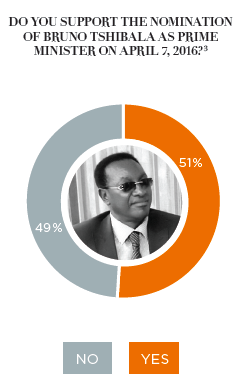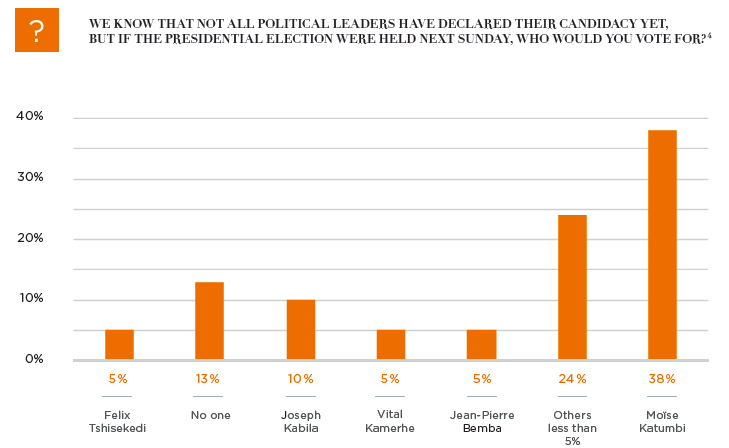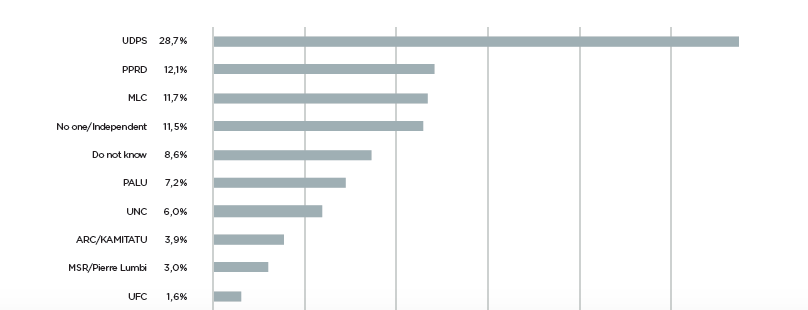Last week, we published our second nationwide public opinion poll with BERCI. In contrast with the first one, where we polled over 7,500 people in person, this poll was our first attempt to conduct a telephone poll. (For the polling nerds out there, we were able to do this reliably because we selected them at random from our initial sample of 7,500 people, allowing us to weight our sample to correct for the urban, male, and affluent bias that often comes with phone polls in Africa).
Here are the highlights:
- People are not happy with Kabila, but willing to give Tshibala a chance. President Kabila’s approval rating has plummeted to its lowest level since BERCI started their surveys 15 years ago. Only 24% of those surveyed had a good opinion of him. However, 51% said that they supported the nomination of Bruno Tshibala as prime minister, despite the objections of the main opposition coalition. This is surprising, given how skeptical the population is of Kabila. My interpretation is that people are increasingly impatient with these interminable negotiations among elites in Kinshasa. They want to get to elections as fast as possible, and if that means supporting Tshibala, so be it. In other words: the New Year’s Eve deal is popular (83% backed it), but people also want to have elections as soon as possible.

2. Katumbi is in pole position, but… As in our past poll, it looks like Moise Katumbi would easily win a presidential vote if one were held soon (he would get 38% of the vote, the next most popular is Joseph Kabila with 10%). With that kind of margin, it would be difficult to rig the elections without it becoming blatantly obvious. However, if Katumbi is forced to remain in exile, the field would be wide open. Since this is a one round, first-past-the-post system, Kabila (or his designated successor, since he cannot legally run) could win merely by dividing the opposition, which is a plausible scenario.
3. The presidential and the parliamentary elections are likely to go in different directions. In the Congo, as in France (whose constitution the Congolese emulated), the prime minister reflects the majority in parliament and has responsibilities that overlap with those of the president. If our polling is borne out, the UDPS would be the largest party in parliament (29% say they would vote for them) and the current UDPS-G7 coalition would almost get a majority of seats. Of course, the president has enormous power in Congolese politics, and so whoever is president would be able to use his (or her?) influence to forge a parliamentary coalition.
4. No figure has emerged to replace Etienne Tshisekedi. His son Felix has struggled to galvanize public opinion (only 55% have a good opinion of him). A full half of those who said they would have voted for Etienne in a presidential vote now say they wouldn’t support anyone.


